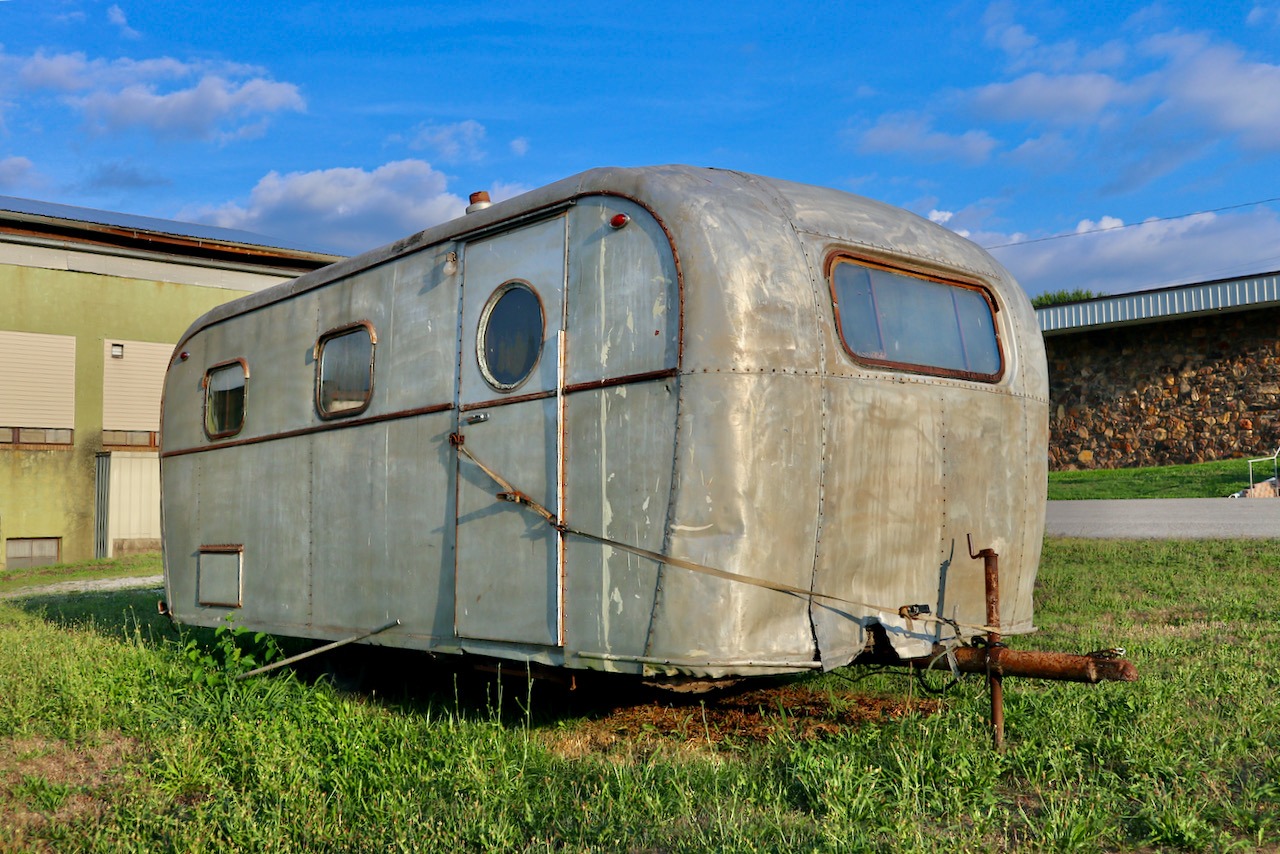
Confessions of an Early Fulltime Family RVer
I'm a middle child. Growing up, I didn't want to be known as "the younger brother." I wanted to be unique.
Known for being me.
One way to be unique is to do unique things. Do unique things often enough and you'll end up being an early adopter for something that becomes popular.
Snurfers, Jet Skis and Computers
Winters in my home of West Michigan found most kids using the classic "red sleds" or (if you had money) skiing. We had snurfers - a single wooden ski, turned up at the front, with a rope to hang onto, and staples to stand on.
We spent hours on our boards. We learned to make it down the hill without falling, carve tracks, and do small jumps.
A few years later it was jet skis. A friend's family bought the first stand-up models in our lakefront town. We dedicated our summer afternoons to learning how to stay on them, do spins, and jump boat wakes.
Then it was home computers. I was one of three high-school freshman with a computer at home. We spent hours experimenting. I learned to code, use word-processors, and how to print the logos of favorite rock bands.
Snurfers evolved into snowboards and became an Olympic sport. You can find jet skis on any lake on a warm summer Saturday.
And you know what happened with computers.
Early Adopter Ups
On the upside, early adopters create community.
It's natural.
You enjoy this new thing and you want to share that excitement with others. You want to know you aren't crazy for spending time on it. You want to show off what you've learned. And you want to learn from others.
Pre-internet, it's how clubs get started. Newsletters got published. Then the internet enabled early-adopter email lists, discussion forums, and Facebook groups.
Early Adopter Downs
On the downside, early adopters find the guardrails.
As snurfers evolved into snowboards, a battle started between them and ski resorts. Check out this video from 1985:
It goes on to this day .
Jet skis have been blamed with noise pollution, environmental pollution, and have divided a number of waterfront communities.
Innovations often have a bumpy road. But over time? As more people join in, the novel becomes mundane. The cool new thing becomes old hat.
Early adopters move on to the next new thing. Later adopters fill their place.
Finding Community on the Road
We were early adopters of fulltime family RVing. We hit the road in 2010.
But we weren't the first.
And we weren't alone.
The FamiliesOnTheRoad.com domain was first registered in 1999. When we hit the road it provided a directory to dozens of other RVing families.
But the USA is a big place. We were on the road for four months before crossing paths with another one of those families. We were so excited to meet them we changed our schedule and drove out of our way. Our time together flew by as we connected with like-minded souls.
Those connections would happen over and over again. I tracked blogs, Instagram, and Facebook all in hopes of finding nearby RVing families to meet. We enjoyed the instant community with like-minded people.
We later renamed and relaunched our blog and social accounts with a goal of introducing traveling families to each other so they could enjoy that same sense of community.
The Novel Becomes Mundane
Our efforts - and the efforts of others - worked.
The numbers of RVing families grew. Our following grew. Facebook groups started. Websites added discussion forums. People wrote books. Clubs formed and held formalized rallies. Conferences popped up. Magazines launched.
And the early adopters aged out.
Us included.
My unproven and unscientific estimation is that most families RV fulltime for 5-7 years. Then older kids want jobs or other college-prep experiences that are hard to manage while on the road. Or the income source changes. Or people just get tired of it.
The New Normal?
We've been off the road for a while now. Our kids are grown up and out.
So I might just be out of touch.
But we've bumped into some current fulltime family RVers.
I expected some of "that old black-magic" community-feel again. Talking about places to go. Places to avoid. How to deal with kids getting older. Arguing Class "A" or fifth wheel. Gas vs. diesel.
It wasn't there.
It was like meeting someone from the same state. Or who went to the same college. Good for a few minutes of conversation, then it's "excuse me, I'm gonna get some of those meatballs before they're gone."
I didn't understand.
Later, it dawned on me.
They weren't early adopters.
The market has matured. There are dozens of social media-based RV influencers pumping out a firehose of content. Reality TV shows. Documentary movies.
What used to be new and novel is now normalized.
Late adopters don't have the same need for community.
Did we fail by succeeding?
I felt bad for them. They were missing out (it seemed to me) on the best part of fulltime RV travel.
Then I wondered.
Was it our fault?
In promoting what we loved most about traveling, did we help kill it?
What Do You Think?
Is the community aspect of fulltime RVing different now?
Do families connect with others on their own, or is it all via organized events from from clubs?
0 Comments Add a Comment?